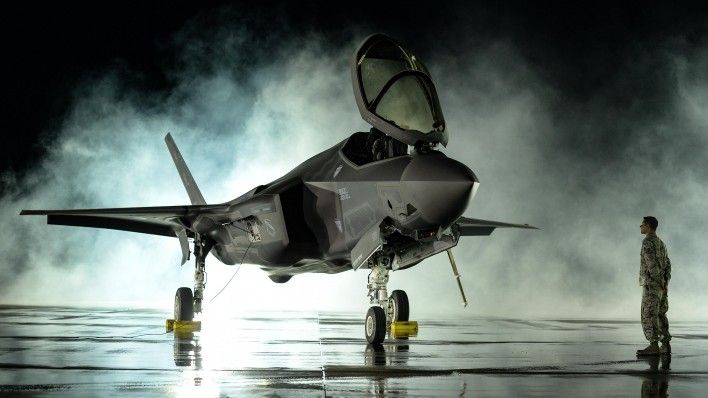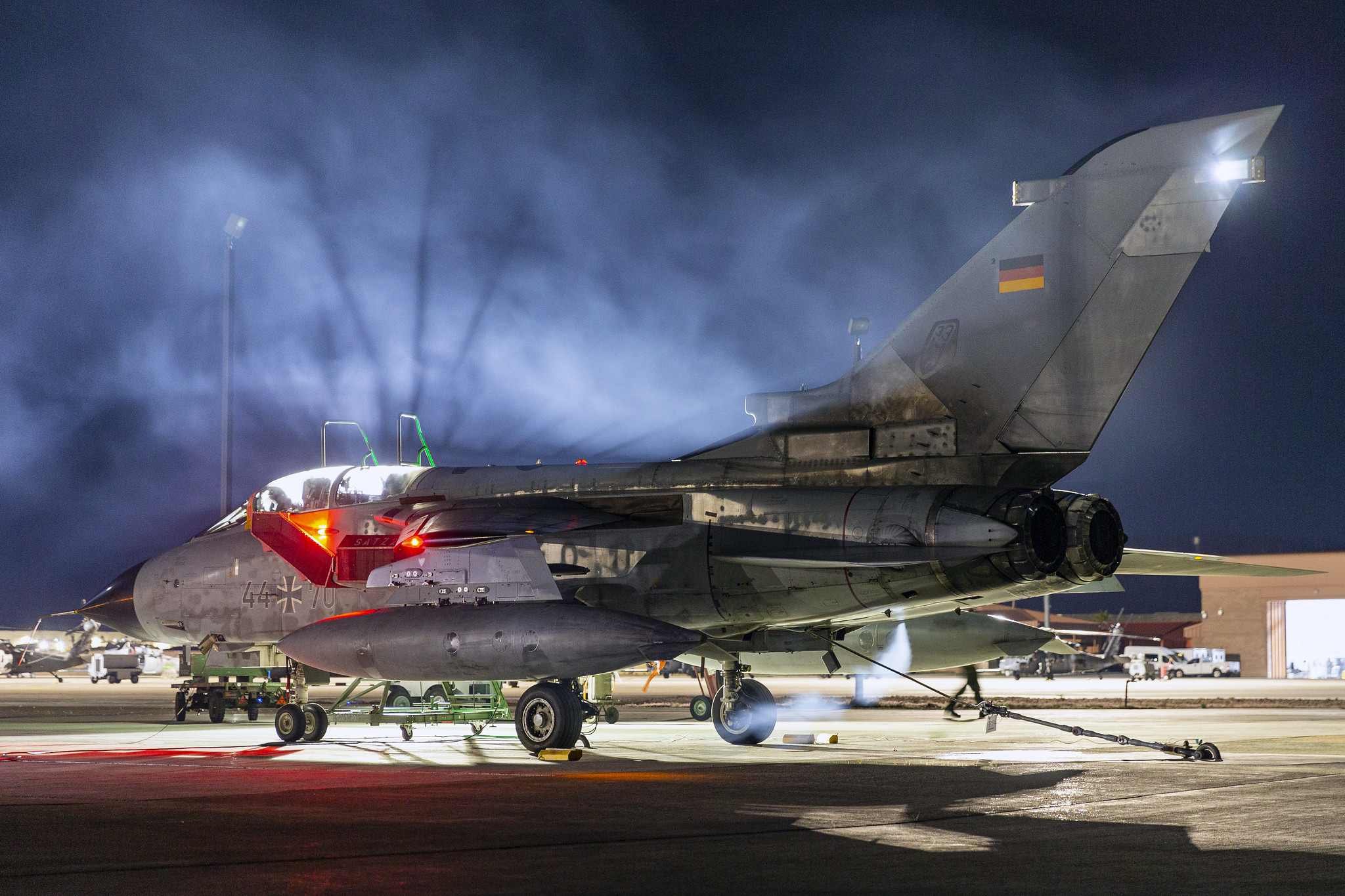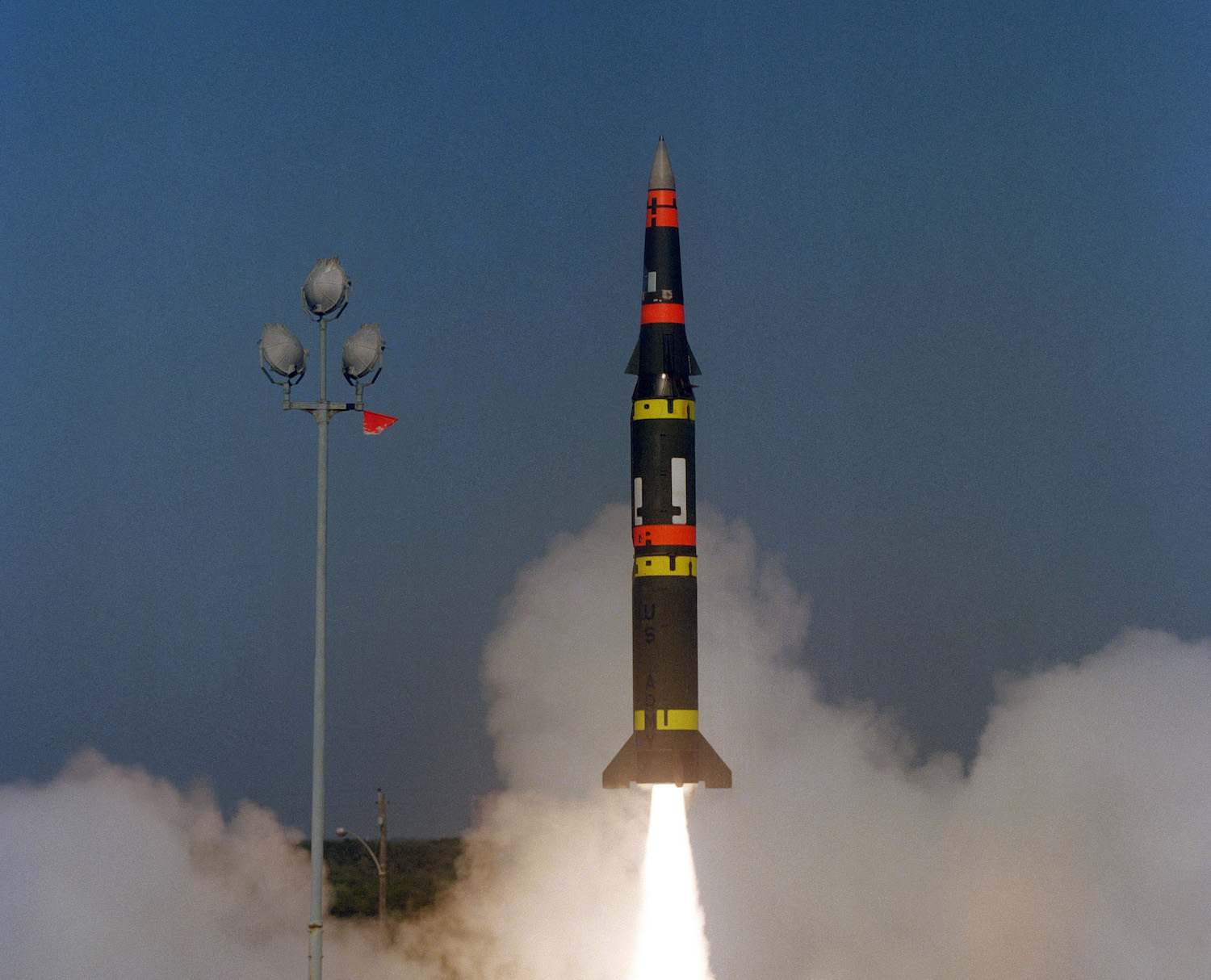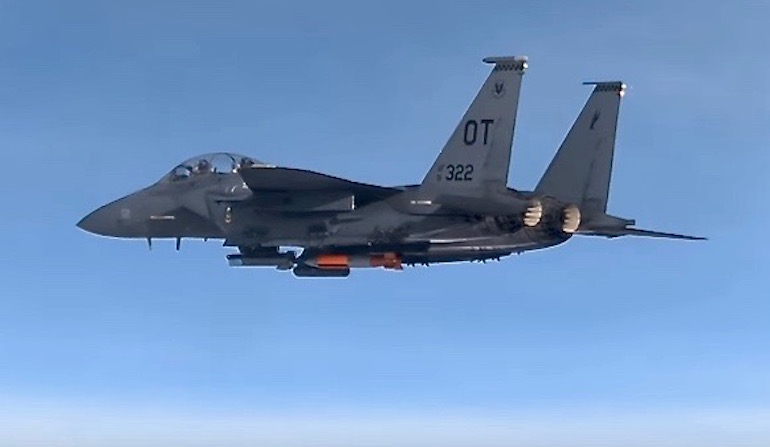Armed Forces
Nuclear Roulette of the German Left and the Polish F-35

A discussion has begun in Germany yet again, covering the topic of the withdrawal of the US nuclear assets from the country. Both sides of the dialogue use Poland as a reference point. They are pointing to Warsaw’s relationship with the US, and its ability to work towards hosting the nuclear weapons within its territory. The above would be expected to happen within the framework of the Nuclear Sharing system.
Prominent representatives of the German SPD political party are making calls to withdraw the US nuclear weapons from Germany. In the “Tagesspiegel” interview, a view as such has been presented by Rolf Mützenich, Social-Democrats leader at the German parliament. This happened right after the head of the MoD, Annegret Kramp-Karrenbauer (SPD ally from CDU coalition party) announced the plan to procure the Tornado replacement, taking into account acquisition of the limited amount of US-made Growler and Super Hornet platforms, alongside the German-made Eurofighters. The Super Hornet purchase is to make it possible for the Luftwaffe to carry tactical nuclear weapons belonging to the US and deployed to Germany, within the framework of NATO Nuclear Sharing.
Wer glaubt, Glasnost und Perestroika seien durch die nuklearen Abschreckung des Westens möglich geworden, hat einiges nicht verstanden. Atombomben auf deutschem Boden, an deutschen Flugzeugen sind kein Selbstzweck, kein Wunschzustand und zudem eine sehr teure Angelegenheit.
— Saskia Esken (@EskenSaskia) May 2, 2020
The declaration made by the SPD leader has inspired a vivid discussion. The discussion has been happening internally, within the party, as well. So, Mützenich was also supported by the SPD Chair, Saskia Esken - she claimed that the money could be used better to combat the social inequality and support the education, while weapons of mass destruction are not a contributing factor when it comes to peacekeeping. She also claimed that she has been against a “double” stance adopted by NATO, deploying nuclear weapons to Europe and engaging in negotiation with Russia at the same time, for more than 4 decades now. She added that “who thinks that Glasnost and Perestroika have become possible thanks to the Western nuclear deterrence, really understands nothing”.
This attitude, however, was questioned by the head of the German MFA, Heiko Mass, also a member of SPD. He has shown, in his interview for Der Spiegel, that unilateral steps that would hit the trust the most important allies have towards Germany are also undermining the Alliance as a whole, thus they are not bringing the world together, towards common removal of nuclear proliferation altogether. The declarations made by the socialist-democrats supporting the idea of withdrawing the nuclear weapons were also criticized by the CDU/CSU coalition led by Angela Merkel. CDU/CSU coalition is supporting the German involvement in the NATO Nuclear Sharing programme.

Arguments brought into the debate by the experts seem to be most interesting. At least several German experts noted that the withdrawal of nuclear weapons from Germany could push Poland towards taking steps to have those assets deployed within its territory. Ulrich Speck, Senior Visiting Fellow w at German Marshall Fund stated: “The Germans may abandon nuclear deterrence. That forces Poland to rethink the matter of nuclear deterrence once again. And this also drives the Russians to intensify their influence strategy in Central and Eastern Europe. Result: More conflicts in the east, with Europe being weakened.”
Deutschland kann nukleare Abschreckung aufgeben.
— Ulrich Speck (@ulrichspeck) May 3, 2020
Das zwingt Polen dazu, neu über nukleare Abschreckung nachzudenken.
Und es motiviert Russland, seine Strategie der Einflussnahme in Mittel- und Osteuropa zu intensivieren.
Ergebnis: Mehr Konflikte im Osten, Europa geschwächt. https://t.co/V0grbjfhe7
A similar, aggressive tone has been adopted by the CDU/CSU spokesperson for defence and foreign policy, Roedrich Kiesewetter: “SPD also questions the common transatlantic security space, and this drives countries such as Poland to ask for the deployment (of the nuclear weapons locally - eds.)".
So ist es! #SPD stellt gemeinsamen transatlantischen Raum ungeteilter Sicherheit in Frage, zwingt Länder wie Polen die Stationierung bei sich zu fordern + betreibt damit Bruch #NATO #Russland Grundakte. Wahrlich unprofessionell oder berechnend. Schmidt dreht sich im Grabe um.
— Roderich Kiesewetter (@RKiesewetter) May 2, 2020
Tobias Bunde of the Munich Security Conference was also mentioning the possibility that Poland could make steps towards relocating the nuclear assets locally, should unilateral NATO-exit be the case. What’s interesting, the head of the SPD also mentioned Poland, in the context of the offer that Warsaw has made, to host the US Forces at Fort Trump and to be a receiving nation when it comes to nuclear weapons.
Germany, Nuclear Weapons and Poland
It is not a secret: deployment of nuclear weapons to Germany, as a part of the Nuclear Sharing initiative, has numerous opponents. The SPD remembers that a few years after the Helmut Schmidt’s (SPD) government agreed to the deployment of the Pershing II missiles to Europe, that very government has fallen - also due to the protests staged by the peace-focused society.
Schmidt has also been mentioned by those who criticize the SPD’s intention to withdraw the US Nuclear Assets, claiming that the Chancellor whose stance was also a foundation that motivated the USSR to start the disarmament talks resulting in signature of the INF Treaty (recently breached by Moscow), is “doing somersaults in his grave”. One should also remember that Germany expects the parliamentary election to happen next year. Most of the SPD would like a left-wing coalition to be formed, with the post-communist Die Linke and the Green Party. Both Parties mentioned here are strongly opposing the Berlin’s involvement in the Nuclear Sharing program.

All of the factors listed above shall not obscure the fact that SPD, one of the main German political parties, is capable of questioning the alliance-related commitments for the sake of gaining ad hoc political benefit. Not only are those commitments confirmed within the NATO documents, as they have also been mentioned in the internal German documents, such as the White Paper of 2016, recently adopted by the CDU/CSU-SPD coalition.
Poland in Nuclear Sharing?
Potential involvement of Poland in the NATO Nuclear Sharing programme has somehow been a subject of an expert debate from time to time, without any concrete steps. The possibility has already been mentioned in December 2015 by the Deputy Minister of Defence, Tomasz Szatkowski, is the Polish ambassador to NATO HQ at the moment. Officially though, Warsaw is not taking steps towards a solution as such. The Polish Government is indicating that there is still a necessity in place, to reinforce the allied (collective) deterrence mechanisms and to pursue arms control. It is though the Polish F-16 jets are not nuclear-capable, they have been involved in NATO nuclear deterrence exercises at least a couple of times (Steadfast Noon), carrying out support missions for the aircraft that were tasked with carrying the nuclear weapons.
It is not a surprise - the western European states would certainly oppose a solution where co. We also do not know whether the US would be keen on considering a scenario as such. On the other hand, the Polish involvement in the Nuclear Sharing programme has been a recurring theme in the analytical studies published by the American think-tanks.
One shall also remember that NATO-Russia Founding Act also includes a clear declaration that the allies are not planning to deploy nuclear assets within the territory of the “new” member states, and that no needs within that scope are expected to emerge. This is a bit different from the declaration on refraining from the potential deployment of substantial (conventional) military forces and infrastructure, as the latter was valid on condition that the “current and foreseeable security environment” would prevail (so after a Russian annexation of Crimea and continued aggression against Ukraine deployments of substantial conventional NATO forces into the Central and Eastern Europe could be deemed possible within the Founding Act provisions).
The NATO-Russia Founding Act is still viewed as valid, particularly in Western Europe including Germany. Furthermore, many of the SPD opponents have been referring to that document, criticizing the Party’s drive to unilaterally withdraw the nuclear weapons from Germany. Potential deployment of armament as such, should the allied mechanisms still be in place, the Nuclear Sharing system included (with Germany playing a key role here) would not be plausible.
However, if those mechanisms become invalid, the presence of the US nuclear weapons in Poland could potentially be considered, should Washington be interested in the implementation of a solution as such. There is still a long way to go, towards that objective.
Joining the Nuclear Sharing programme would be very difficult for Poland, and it would also require numerous steps of technical and political nature, along with a proper preparatory process for the military. Possibly, one could consider a possible scenario just hypothetically - especially in the light of the fact that it has been discussed by the experts in Germany.
Probably, shortly after all of the political and legal obstacles are tackled (if that would be possible) it would also be necessary to ask the USA to tailor and certify the Polish F-35 to carry these bombs. It would be less probable that F-16 upgrades would take place, as the platform in question is less capable in the area of penetrating the enemy air defence network.
Tailoring the jets would need to take place in parallel to obtaining of proper infrastructure and ensuring extra protection of bomb storage locations and the jets from the actions that the enemy could take against them. There is no doubt though, should Poland become a part of Nuclear Sharing, one should take an intense reaction on the part of Moscow into account, including info-warfare, cyber-warfare, and powerplay aimed at creating internal conflicts, both within the Polish society, as well as among the allies.
NATO Nuclear Sharing - Technical Possibilities
NATO Nuclear Sharing is based around less than 200 B61 bombs stored at a couple of bases in Germany, Belgium, Italy, Turkey, and the Netherlands. Dual Capable Aircraft, DCA, including F-16s (belonging to USAF and programme participants), F-15E Strike Eagles (US), and some of the Italian and German Tornadoes, are all able to carry the bombs in question. The bombs, however, are owned by the US. Nonetheless, some of them could be transferred to the conflict-involved nations, should a conflict break out. The aforesaid design of a joint deterrence system makes it more credible and balanced, as the system is managed by a larger group of nations, not just the US alone.
Many of the jets involved in the Nuclear Sharing Programme (F-16AM/BM, Tornadoes) will need to be withdrawn and replaced soon. Italy, Belgium, the Netherlands, and the US decided to procure and introduce the F-35A jets that would be tailored to carry nuclear weapons, thus becoming DCA in the future. The bombs are also subjected to modernization - up to the B61-12 version with a guidance system that enhances the range and hit accuracy.

Germany and Nuclear Sharing
On the other hand, further involvement of Germany, in the light of the Tornadoes becoming obsolete, is also becoming questionable. The Eurofighter jets that would take over most of the Tornado’s mission capabilities are not tailored to carry the B61. Berlin is not eager to procure the F-35 as well - taking care of its industry. Angela Merkel and CDU/CSU are proposing the procurement of a small quantity of Super Hornets that could be rapidly certified to carry nuclear armament. However, even that compromise solution is criticized in Germany. Another option is the acquisition of F-15 or F-35 or integration of the weapons in question on the Eurofighter.
However, the SPD made one step further, asking for the unilateral withdrawal of nuclear assets from Germany which could be politically beneficial during the upcoming election, considering the pacifism of most of the German society and antipathy towards the US in general and Donald Trump in particular.
From the Polish point of view, it is even more relevant that one of the primary political powers of a major NATO Ally can question the basic commitments, due to the internal powerplay. Even though no final decisions have been made and at least until Angela Merkel is the leader of the German government the unilateral withdrawal is unlikely to happen, any declarations such as those by prominent SPD politicans shall be viewed as a dangerous political roulette, with the credibility of the allied deterrence at stake. And this may have dire consequences, both within the context of the security in Europe, as well as in the domain of future criteria that could be adopted by the allies of Germany, Poland included, when assessing different solutions covering the international cooperation in the field of security.
